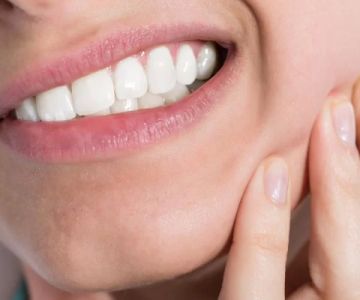Understanding the Effects of a Poor Diet on Gum Disease
We all know that a poor diet can lead to various health issues, but did you know that it can significantly affect your oral health, particularly leading to gum disease? Gum disease, also known as periodontal disease, is a common yet preventable condition that can lead to tooth loss if left untreated. It is primarily caused by the buildup of plaque, a sticky film of bacteria, but what you eat can also play a major role in its development and progression. In this article, we’ll explore how a poor diet contributes to gum disease and what you can do to prevent it.
1. The Role of Diet in Gum Health
The foods you consume are crucial to maintaining healthy gums. A diet that is high in sugars, carbohydrates, and processed foods creates an environment in your mouth that encourages the growth of harmful bacteria. This bacteria feeds on the sugars in your diet, producing acids that break down the enamel of your teeth and irritate your gums. This irritation can lead to gum inflammation, bleeding, and infection—common symptoms of gum disease.
On the other hand, a balanced diet rich in vitamins and minerals helps to strengthen your immune system and fight off the bacteria that cause gum disease. Vitamin C, for example, plays a vital role in the production of collagen, which is necessary for healthy gums. A deficiency in this vitamin can lead to gum bleeding and swelling, a condition known as scurvy. Iron, calcium, and omega-3 fatty acids are other nutrients that support gum health and prevent inflammation.
2. High Sugar Diets and Their Impact on Gum Disease
One of the most significant contributors to gum disease is a diet high in sugar. Sugar acts as fuel for bacteria in your mouth, encouraging their growth and leading to plaque buildup. Plaque, if not removed by regular brushing, hardens into tartar, which can only be removed by a dental professional. Tartar causes the gums to become inflamed, eventually leading to gingivitis, the earliest stage of gum disease.
When you consume sugary foods or drinks, you not only give bacteria a feast but also create an acidic environment in your mouth. This acid erodes enamel, which is the protective layer of your teeth, making them more vulnerable to cavities and decay. Over time, this can exacerbate gum disease, leading to deeper infections and potentially tooth loss.
3. The Importance of Fiber and Antioxidants
Dietary fiber plays an essential role in maintaining healthy gums. Foods high in fiber, such as fruits and vegetables, stimulate saliva production. Saliva helps neutralize acids, wash away food particles, and fight bacteria, all of which are vital for keeping your gums healthy. Fiber also promotes healthy digestion, which in turn supports your immune system, helping your body fight off infections, including those in the mouth.
Antioxidants, found in many colorful fruits and vegetables, also help combat oxidative stress in your body. This stress is caused by harmful molecules known as free radicals, which can damage healthy cells, including those in your gums. Antioxidants neutralize free radicals and reduce inflammation, supporting the healing process and preventing gum disease. Berries, leafy greens, and citrus fruits are excellent sources of antioxidants that can help protect your oral health.
4. The Link Between Processed Foods and Gum Disease
In addition to sugary foods, processed foods can also have a negative impact on your oral health. These foods are often high in unhealthy fats, sugars, and sodium, and they tend to be low in the nutrients your gums need to thrive. A diet rich in processed foods can lead to inflammation in the body, including the gums. This systemic inflammation weakens your immune system and makes it harder for your body to fight off bacterial infections in the mouth, contributing to the development of gum disease.
Furthermore, processed foods often lack fiber and other essential nutrients that support gum health. As a result, they contribute to a buildup of plaque and tartar, putting you at a higher risk of developing gum disease. It’s essential to limit your intake of processed foods and focus on whole, nutrient-dense options that provide the vitamins and minerals your body and gums need to stay healthy.
5. The Role of Hydration in Preventing Gum Disease
Staying hydrated is another critical aspect of maintaining gum health. Water helps to rinse away food particles and bacteria that may otherwise contribute to plaque buildup. It also helps to produce saliva, which is your mouth’s natural defense against gum disease. Without adequate hydration, your saliva production decreases, making it easier for bacteria to accumulate and cause gum irritation.
Drinking water also helps maintain the balance of your oral pH levels, neutralizing acids produced by bacteria and preventing enamel erosion. By staying hydrated, you can help reduce your risk of gum disease and other dental issues. So, always make sure to drink plenty of water throughout the day to keep your gums healthy and hydrated.
6. Practical Tips for Preventing Gum Disease Through Diet
While a balanced diet is essential for oral health, it’s important to combine good nutrition with proper oral hygiene. Here are a few practical tips for preventing gum disease through your diet:
- Limit sugary foods and drinks: Reduce your intake of sugary snacks, soda, and processed foods to prevent plaque buildup and enamel erosion.
- Eat a variety of fruits and vegetables: These foods are rich in fiber and antioxidants, which help promote healthy gums.
- Incorporate more omega-3 fatty acids: Foods like fish, nuts, and seeds can help reduce inflammation in your gums and support overall oral health.
- Stay hydrated: Drink plenty of water throughout the day to promote saliva production and wash away harmful bacteria.
- Brush and floss regularly: Proper oral hygiene is essential for removing plaque and preventing gum disease. Brush twice a day and floss daily to maintain a healthy mouth.
7. Conclusion: Take Control of Your Gum Health
Diet plays a vital role in the health of your gums, and making simple changes to your eating habits can significantly reduce your risk of developing gum disease. By focusing on nutrient-rich foods, staying hydrated, and practicing good oral hygiene, you can protect your gums and prevent the discomfort and complications associated with gum disease.
If you are concerned about your oral health or believe you may be at risk for gum disease, it’s important to consult with a professional. Our team at Hidden Brook Veterinary is here to provide expert guidance and treatment options for your pet’s oral health. We can help you understand how diet and lifestyle affect your pet’s gums and recommend the best products for their care.







 Westgate Dental Arts
Westgate Dental Arts Coventry Family Dental
Coventry Family Dental Familia Dental
Familia Dental Dr. Daniel S. Fife, DDS
Dr. Daniel S. Fife, DDS Dentistry At Suburban Square: Michael I. Wollock, DMD
Dentistry At Suburban Square: Michael I. Wollock, DMD Comfort Care Dental
Comfort Care Dental The Importance of Oral Health Education During Pregnancy for a Healthy Pregnancy
The Importance of Oral Health Education During Pregnancy for a Healthy Pregnancy Why Skipping Dental Checkups Can Lead to Bigger Oral Health Problems
Why Skipping Dental Checkups Can Lead to Bigger Oral Health Problems Advantages of Porcelain Dental Restorations
Advantages of Porcelain Dental Restorations Best Tips for Brushing Your Teeth Properly for Healthy Gums: Essential Techniques for Oral Health
Best Tips for Brushing Your Teeth Properly for Healthy Gums: Essential Techniques for Oral Health How Can Diabetes Cause Tooth and Gum Problems? Preventing and Managing Oral Health Issues
How Can Diabetes Cause Tooth and Gum Problems? Preventing and Managing Oral Health Issues Healthy Habits for Promoting Good Oral Health and Hygiene: Tips for a Healthy Smile
Healthy Habits for Promoting Good Oral Health and Hygiene: Tips for a Healthy Smile